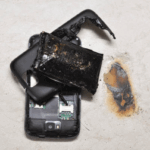
Yes, you can refile bankruptcy after dismissal of your Chapter 13 case for nonpayment, but you will have to overcome some hurdles. Keeping up with your Chapter 13 payments isn’t always easy, but it’s a requirement. If you fail to make your Chapter 13 payments and the court dismisses your case for nonpayment, you will need to refile for bankruptcy after dismissal. Because of the drawbacks associated with filing a new Chapter 13 case—especially when the previous one ended in default—it’s often better to ask the court to reinstate your original Chapter 13 case before it was dismissed or closed.
Read about a common type of personal injury cases here>>
If you indeed want to refile your Chapter 13 case, here are some of the issues you would have to face:
- new legal fees and costs
- shortened automatic stay protection
- difficulty proving you can maintain a plan
- extended credit rating impact.
If the disbursement has already occurred, consider that if your financial situation changes, Chapter 7 may fit better. Our short bankruptcy quiz has ten questions that will help.
In a Hurry? Dial +1213-596-0265 now!
What’s Embarrassment for Nonpayment Under Chapter 13 Bankruptcy?
If you do not comply with the plan payments or work with the Chapter 13 trustee appointed to your case to catch up when you fall behind, the trustee will file a motion asking the bankruptcy court to “dismiss” or close your case. At the dismissal hearing, you’ll be allowed to ask the judge for time to catch up, and if the judge agrees, your case will remain open. If the court grants the dismissal request of the trustee, your Chapter 13 case will come to an end, and you may need to refile for bankruptcy after dismissal to regain protection from creditors and continue your repayment efforts.
Why the Court Will Dismiss Your Case Due to Nonpayment Under Chapter 13?
You will be paying your Chapter 13 payment strictly on time every month. Interests and fees increase when you don’t pay on time, and after that, the Chapter 13 trustee doesn’t have enough money to cover the amounts owed by the plan when it defaults.
Usually, the Chapter 13 trustee will work with you if you have an unexpected expense. But you must have the initiative to immediately notify the trustee and obtain their payment directions so the plan can be put back on course.
What Will Happen Immediately after the Bankruptcy Court Closes Its Chapter 13 Case Dismissal in Bankruptcy?
Your primary concern should now have become that of all your creditors. Once the bankruptcy court dismisses the case, you also lose protection from the collection of creditors as your Chapter 13 plan is now longer in effect.
You might or might not owe as much as before you filed Chapter 13; however, you would be credited with all of the Chapter 13 payments. Nevertheless, any interest that had been stayed during bankruptcy has been added to what was owed. Thus, the balances on credit cards, medical bills, personal loans, and other unsecured debt may actually be higher than what they were before filing if the court dismissed your case before the plan paid on those debts.
Also, prepare to face unresolved problems with mortgages, car loans, and judgment liens. Your creditors can reinitiate wage garnishment, foreclosure, and repossession in case you didn’t bring the balances current by your Chapter 13 plan, and that is very likely the case.
Refile Bankruptcy After Dismissal for Nonpayment
You will have a completely new Chapter 13 case on your hands as opposed to actually “refiling” your old, dismissed case.

In a Hurry? Dial +1213-596-0265 now!
Here Are Some Things to Think About as You Move On:
Preparing New Chapter 13 Bankruptcy Paperwork To Refile Bankruptcy After Dismissal
Plan on paying a bankruptcy lawyer to create a new petition, schedule, and plan that would meet the current conditions if you refile for bankruptcy after dismissal. You will also have to pay a new amount in filing fees and undergo the credit counseling course once again if it has been over 180 days since you last completed this course. Depending on what the dismissal was, you may also need to get new counsel. Some bankruptcy lawyers avoid retaining clients who have difficulties making Chapter 13 payments because there is more work involved.
Automatic stay protections automatically cease when there is a loss in Chapter 13. Courts closely examine serial bankruptcy filings because they believe the filers may abuse the automatic stay. This is usually the order that halts most creditor collection actions. In other words, if you are the applicant filing for a new case within one calendar year of the dismissal of the old case, the said automatic stay shall last for 30 days unless you make a successful motion to extend it.
Since filing the motion can be expensive and may fail, you should consider other options, such as proposing a reasonable repayment plan that the trustee and creditors are unlikely to object to. Once the court confirms the plan, it becomes a binding contract between you and your creditors, who must follow its terms as long as you remain compliant. After that, you would not need the automatic stay.
Timing Your Refiling of a Dismissed Case
If you refile bankruptcy after dismissal shortly after your last case, expect the trustee to ask why this new filing should be any more successful than the previous one. If your income remains about the same and your expenses haven’t decreased, it can be difficult to convince the trustee that any meaningful financial or personal changes have taken place.
In addition, a negative Chapter 13 bankruptcy remains on your credit report for seven years. The time begins when you file the new case, and so any new filing will extend the reporting period a lot. You may find out more about life after bankruptcy.
Navigating the Bankruptcy Case
Bankruptcy is actually a qualification process. The laws give directions for carrying out a 50- to 60-page bankruptcy petition, and since these rules are applicable in every case, there is no need to keep another event. We are here to help.
The re-filing time varies. There are waiting times for re-filing that are dependent on what happened with the last action and also on what type of Bankruptcy you are re-filing for. For instance, you may immediately refile a bankruptcy if the court dismissed it without prejudice. However, you cannot obtain a discharge in Chapter 7 for the following eight years after a previous Chapter 7 discharge. Motion and re-filing after the dismissal have different requirements in time limits and regulations on motions of reconsideration, amended tax returns, and re-prosecution

Final Thought!
It tends to be an overwhelming task to refile bankruptcy after dismissal, but there’s no need to face it all alone. Tenina Law’s experienced legal team will be by your side to help you understand your options, prepare your new filing, and work toward a stable financial future. Whether your Chapter 13 dismissal was due to nonpayment or you’re unsure if it’s the right time to refile bankruptcy after dismissal, we’re here to help you navigate the process with confidence.
Contact Tenina Law for a complimentary consultation to jump-start regaining your confidence and peace of mind.






